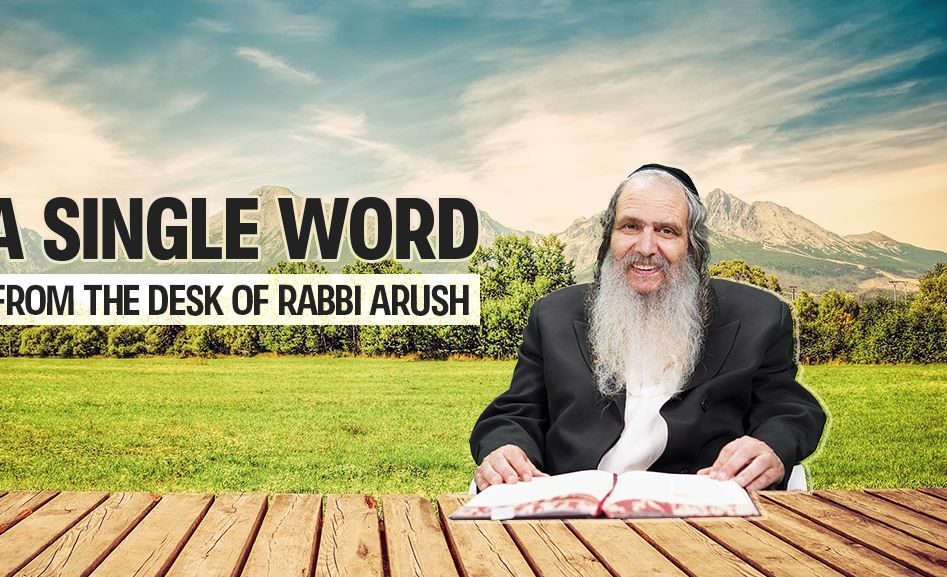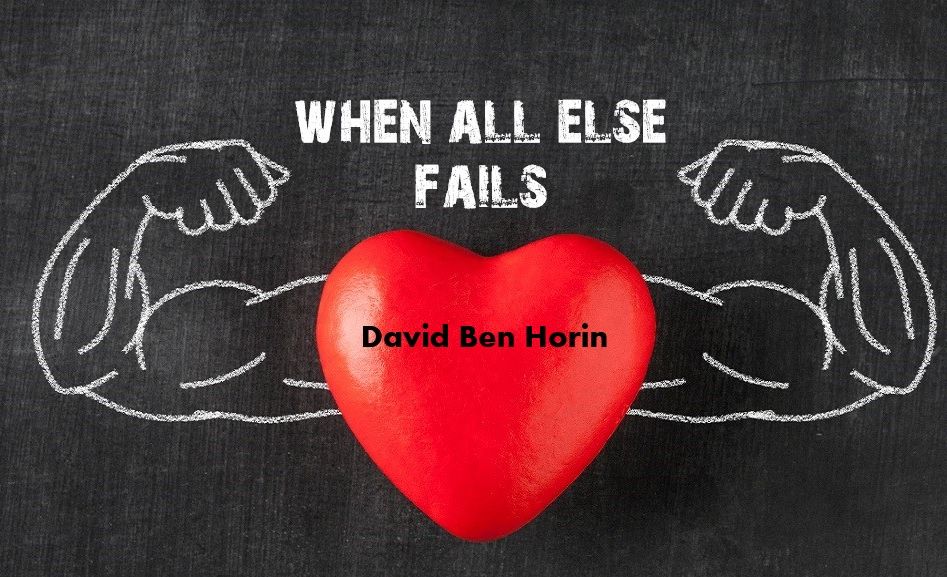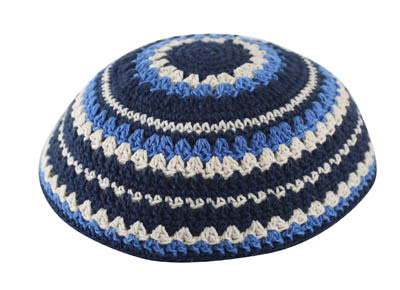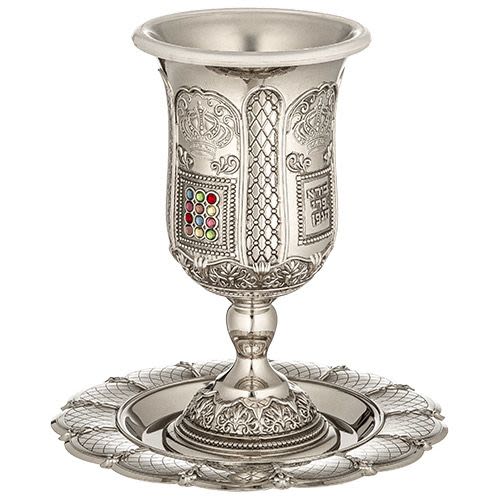
Time is Money
Those who are not so well off often do much more for the needy than people with high incomes. Sometimes the more you have the more insecure you are about losing it…

When your brother becomes impoverished and slips down among you, you must come to his aid. Help him survive… (Vayikra 25:35)
The Talmud asks why the Torah writes, “You shall love the L-rd your G-d with all of your hearts, your life, and your possessions” (Devarim 6:5)? The posuk seems to start off from the least important toward the most important, which is why “possessions” seems to be out of place. However, the Talmud answers that for some people, their possessions are more valuable than their own lives.
As we have discussed in the past, according to the Vilna Gaon this means that some people would rather give of their time than of their money. Even though “time is money,” still, it is not money like money is money. Therefore, it is easier for some to be stingy with money more than with their time, and understanding that, the Torah spoke to such people as well: Be willing to part with your money ALSO when the time comes for such a mitzvah.
One such mitzvah is the subject of the posuk above. Often, we’re so busy trying to keep ourselves from financially sliding that we can’t even consider helping others who are on the slide. Sometimes, oddly enough, it is the people who are not so well off who help to the best of their ability more so than people who are better off. Sometimes the more you have the more insecure you are about losing it.
On the surface, this appears only to be a mitzvah of chesed. True, chesed is what makes the world go around, spiritually- and physically-speaking as well, but it is still only one mitzvah. No question that G-d wants us to be nice to one another and feel for other people who are suffering, but if we don’t, is it really such a big deal?
The truth is, this mitzvah is more than just a mitzvah of chesed. It is a test, a BIG test for all parties involved, but in different ways. For the person experiencing financial woes it may be a test of his trust in G-d, to see how deeply he believes that all G-d does He does for the good. It is also, more than likely, a tikun for something not quite right in his relationship to materialism.
However, since these reasons already existed to financially pressure the person in need for his OWN good, then G-d can use his situation as a vehicle to test others as well, to see how they respond to the need to be caring and charitable. It is a way to bring out how people relate to their own financial success, whether they see it as a gift from G-d or simply the reward for the efforts they have made.
However, the Talmud warns, “All is in the hands of Heaven except for fear of Heaven” (Brochos 34b). Principally, this means that all of our successes are not necessarily the result of our efforts, physical OR spiritual. When the rabbis teach, “According to the effort is the reward” (Pirkei Avos 5:22), the reward they were referring to was that of the World-to-Come. Regarding life in this world, they say elsewhere: There is no reward for a mitzvah in this world (Kiddushin 39b).
In other words, you can spin your wheels doing the right thing, but receive little for it in this world. In the NEXT world the points rack up. However, in this world, there is not a direct cause-and-effect relationship between one’s effort to financially succeed and one’s actual success. There’s a lot of “mazel” (read: Divine Providence) involved.
That’s why there are people who can work hard all their lives and yet never get ahead financially. And yet some people can work half the time and make a quarter of the effort and become multi-millionaires (I said “some,” not most). Heaven takes into account far more than a person’s desire and effort to “make it” financially, even if they graduated with honors from the top college.
Therefore, point number one is: The fact that we have worked hard for our physical possessions does not mean we had them coming to us. Thus, our relationship to them is not absolute. As Job said, “G-d gives and G-d takes,” and the Talmud remarked:
Rebbi Meir said: A person should teach his son and clean and easy trade and pray for mercy to the One to Whom belongs wealth and possessions. For, poverty does not come from one’s work, nor does wealth, but from the One to Whom wealth belongs, as it says, “The silver is Mine and the gold is Mine, testifies the L-rd of Hosts” (Chaggai 2:8). (Kiddushin 82b)
As one person (I think who survived the Holocaust) once said, “The Holocaust was the great equalizer, where the once Jewish rich and mighty were reduced to the poor and humble, just like the rest of their previously less fortunate brethren.”
It sounds a little precarious, because we’d like to know that what we have worked for is securely our own. However, it is a small price to pay for the right to go to the World-to-Come, which leads us to Point #2…
“Please! No!” said Ya’akov… “Please accept my welcoming gift as it has been brought to you. G-d has been kind to me, and I have all [I need].” (Bereishit 33:10-11)
Point #2 is: We are blessed with whatever physical possessions we have for a reason, and it is usually for a spiritual one at that. In other words, as the rabbis point out on many occasions, “G-d has many messengers” to execute His plan for creation throughout history (Rashi, Beshalach 16:32), and our physical and spiritual abilities allow us to be just that.
Western thinking has come to the conclusion that the main part of human existence is the here-and-now. I wouldn’t say that people walk around each day saying, “Eat, drink, and be merry” — at least not the more realistic ones — but it IS an underlying principle of Western society. Such a philosophy is what transforms “means” into “ends” and makes materialistic success the goal of life since it often seems to be the most reliable path to merriment in this world.
It is not a new point of view, but one that is as old as man himself. It is the type of perspective that develops when one does not pursue a close relationship with G-d, for whatever reason. However, we don’t have to go back to the very beginning of history to find its earliest roots. It is sufficient to examine the following dialogue in the Torah:
Ya’akov looked up and saw Eisav approaching with 400 men… [Ya’akov] then prostrated himself seven times as he approached his brother. Eisav ran to meet them. He hugged [Ya’akov], and throwing himself on his shoulders, kissed him. They wept…
“What did you have to do with the whole camp that came to greet me?” asked Eisav.
“It was to win favor in your eyes,” replied [Ya’akov]. “I have plenty, my brother” said Eisav. “Let what is yours remain yours.” “Please! No!” said Ya’akov,… “Please accept my welcoming gift as it has been brought to you. G-d has been kind to me, and I have all [I need].” [Ya’akov] urged him, and he [Eisav] took it. (Bereishit 33:1-11, excepted)
What was supposed to have been the fight of the century turned out to be an ideological battle. Embedded in this short reunion of history’s most famous twin brothers, Ya’akov and Eisav are their very different world perspectives, and the underlying message of the mitzvah about which we began speaking.
As Rashi explains, Eisav was bragging to Ya’akov. He wasn’t just rejecting Ya’akov’s gift, he was saying that he was so fantastically wealthy and powerful that it couldn’t possibly make a difference to his life! However, since quantity was the issue for Eisav, as evident from his words, “I have plenty,” in the end he did keep the gift and increased his wealth.
However, says Rashi, Ya’akov’s answer indicated that quantity did not concern him. After all, what is “enough”? What happens if he needs more tomorrow and regrets having been so generous to his brother the day before?
Not possible, says Ya’akov. The point of materialistic possessions is to allow for expression of spiritual desire in the physical world. They are to allow a person to act on behalf of G-d to take care of himself and others. Materialism can only be a means to an end, and that end being the spiritual fulfillment and the fulfillment of the will of G-d and purpose for creation. As long as I am focused on that, Ya’akov says, then G-d will always make sure that I have what I need to accomplish exactly that. That’s a guarantee.
So now, when we come back to the mitzvah of helping a fellow whose financial “empire” is crumbling, though we may wonder what he did to deserve such a Heavenly decree, it is not really our concern (unless we have some true and objective criticism to offer regarding the matter). We can conjecture all we want, but the real truth will remain hidden from us until the end of days.
What does concern us is the Divine Providence that has brought us together so that we have become aware of his plight, and have the means to help him. When that is the case, then the test has begun. Our decision is going to do much more than simply alter the financial position of our downtrodden neighbor. It is going to reveal whether we share Ya’akov’s position with respect to materialism, or Eisav’s.
***
Pinchas Winston is the author of over 95 books on various topics that deal with current issues from a traditional Jewish perspective. He has also written on the weekly Torah reading since 1993, called “Perceptions”, as well as on current topics and trends affecting Jewish history, past and present. One of his missions is to make the depth and beauty of the more mystical teachings of Torah understandable and accessible to those who can really benefit from them. Visit his website at thirtysix.org.










Tell us what you think!
Thank you for your comment!
It will be published after approval by the Editor.